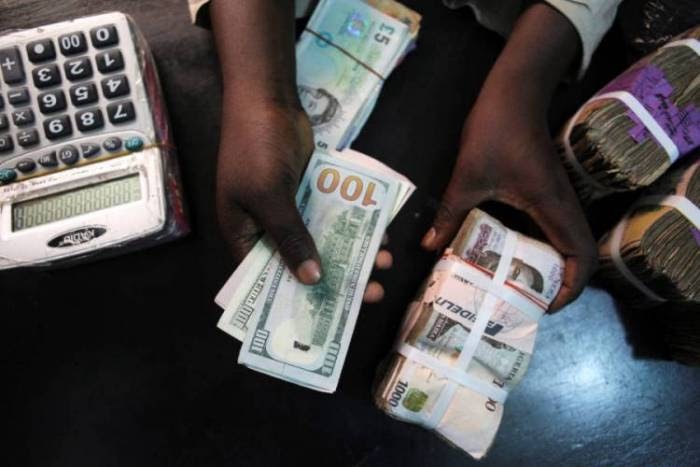The naira's downward trend has continued, with the parallel market rate on Monday sliding to 702 per dollar.
The amount reflects a loss of ₦10 or 1.4 percent compared to the past week's trading price of ₦692.
Operators of Bureaux De Change (BDC) in Lagos and Abuja who spoke with journalists claimed that there is a significant need for foreign cash in the local black market.
The "abokis," or street vendors, set the selling price of the dollar at between ₦700 and ₦702 and the purchase price at ₦690, leaving them with a ₦10 to ₦12 profit margin.
The naira fell to ₦707 per dollar last month. Later, it became stronger to ₦670 after security personnel stormed an Abuja-based BDC hub.
At the official market, the local currency appreciated 0.08 percent against the dollar to close at ₦430.33 at the end of the last trading day (Friday), according to FMDQ OTC Securities Exchange, a platform that oversees foreign-exchange trading in Nigeria.
An exchange rate of ₦444 to the dollar was the highest rate recorded within the day’s trading before it settled at ₦430.33.
It sold for as low as ₦417 to the dollar within the day’s trading. A total of $82.38 million traded in foreign exchange at the official investors and exporters window.
Recently, the Central Bank of Nigeria (CBN) released $265 million to airlines operating in the country to settle outstanding ticket sales.
The move followed complaints by foreign airlines over their inability to repatriate revenue from Nigeria.



